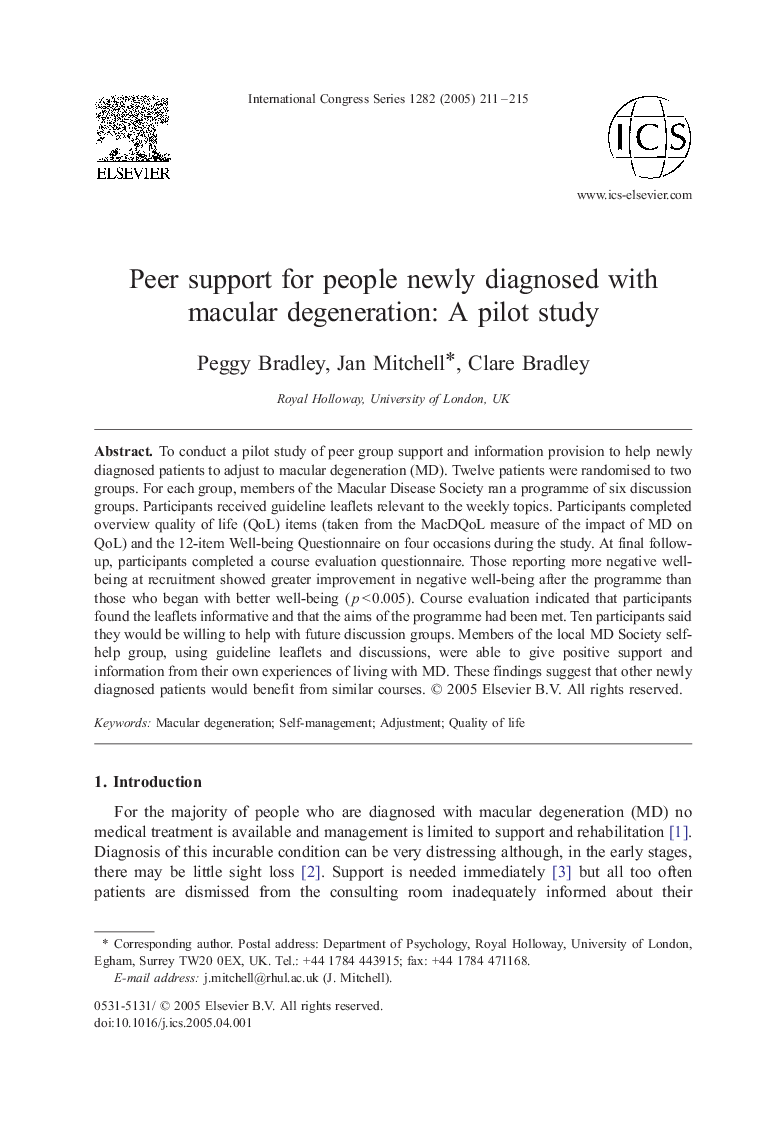| Article ID | Journal | Published Year | Pages | File Type |
|---|---|---|---|---|
| 9021603 | International Congress Series | 2005 | 5 Pages |
Abstract
To conduct a pilot study of peer group support and information provision to help newly diagnosed patients to adjust to macular degeneration (MD). Twelve patients were randomised to two groups. For each group, members of the Macular Disease Society ran a programme of six discussion groups. Participants received guideline leaflets relevant to the weekly topics. Participants completed overview quality of life (QoL) items (taken from the MacDQoL measure of the impact of MD on QoL) and the 12-item Well-being Questionnaire on four occasions during the study. At final follow-up, participants completed a course evaluation questionnaire. Those reporting more negative well-being at recruitment showed greater improvement in negative well-being after the programme than those who began with better well-being (p < 0.005). Course evaluation indicated that participants found the leaflets informative and that the aims of the programme had been met. Ten participants said they would be willing to help with future discussion groups. Members of the local MD Society self-help group, using guideline leaflets and discussions, were able to give positive support and information from their own experiences of living with MD. These findings suggest that other newly diagnosed patients would benefit from similar courses.
Related Topics
Life Sciences
Biochemistry, Genetics and Molecular Biology
Molecular Biology
Authors
Peggy Bradley, Jan Mitchell, Clare Bradley,
